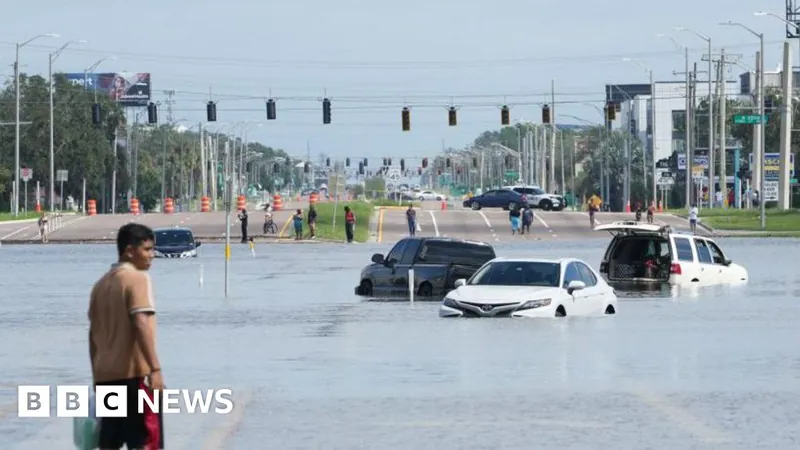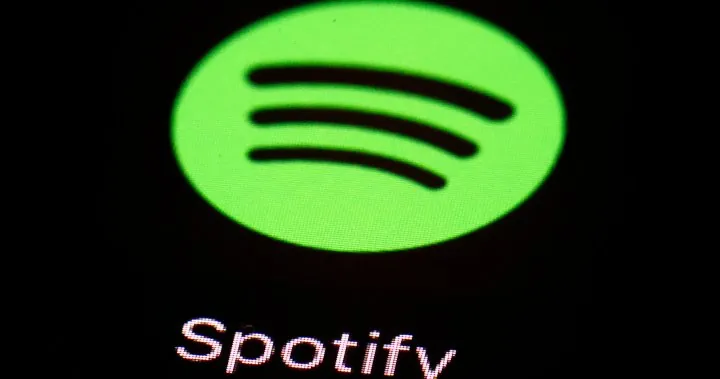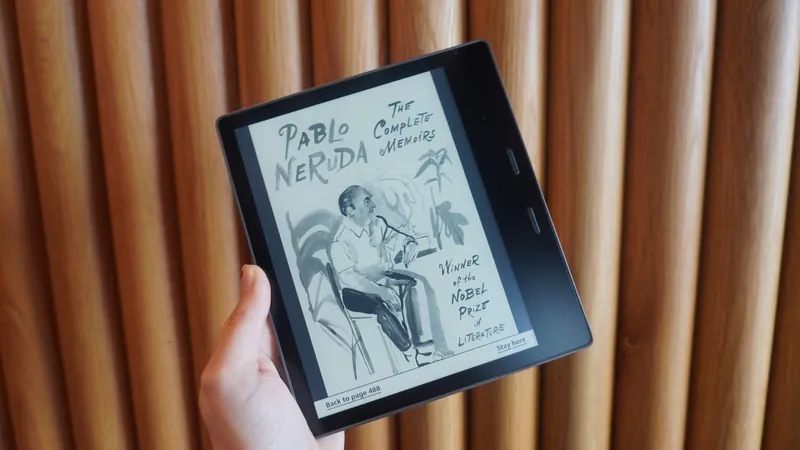
The Social Media Storm: How Hurricane Milton and Helene Conspiracy Theories Flooded Online Platforms
2024-10-10
Author: Liam
A tidal wave of misinformation has engulfed social media concerning the recent back-to-back hurricanes, Milton and Helene, wreaking havoc in the United States.
The unprecedented speed and scale of false claims circulating online have sparked a frenzy reminiscent of nothing we’ve seen before in crisis communications.
From seemingly harmless inquiries regarding the authenticity of weather forecasts to incendiary false accusations, including those perpetuated by former President Donald Trump, the misinformation has run rampant.
Some claims inaccurately suggested that federal hurricane relief funds were funneled to undocumented immigrants, while others circulated manipulated images—a blend of AI-generated fakes of devastated communities and clips from unrelated storms, all designed to mislead.
Most shockingly, public figures, including Congresswoman Marjorie Taylor Greene, have misled their followers by speculating on government interventions in weather patterns, claiming, “Yes, they can control the weather.”
This escalating volley of conspiracy theories not only inflates fear and confusion but also undermines public trust when accurate information is critical.
Fact-Checking the Waves of Misinformation
The misinformation swarming around Hurricane Milton reached alarming levels, with social media accounts—often those adorned with blue verification ticks—spreading disinformation at an astonishing rate.
These accounts, which have a history of pushing conspiracy narratives across various crises, were able to capitalize on changes made by Elon Musk upon his takeover of X (formerly Twitter).
Previously stringent verification guidelines have loosened, allowing anyone to buy verification, resulting in sensational but misleading content gaining traction.
Elon Musk’s revised revenue-sharing policy has further incentivized users to chase engagement at any cost.
With potential monetization based on user interaction, these accounts see opportunities in spreading misinformation, often acknowledging their intent to garner attention rather than convey factual information.
In contrast, platforms like YouTube, TikTok, Instagram, and Facebook have stringent policies against misinformation, taking steps to de-monetize profiles sharing unverified content.
X lacks similar guidelines, allowing viral misinformation to flourish unchecked. Even misleading posts can migrate to other platforms, creating a domino effect of disinformation across social media ecosystems.
Influencers like "Wild Mother," who routinely disseminate unverified theories, have noted a noticeable shift in public perception.
She remarked on the change in audience reaction over the years, reflecting a troubling dissonance where community consensus now often validates previously contested claims.
The Real-World Consequences of Disinformation
The ramifications of this viral misinformation are significant, particularly during a critical time when trust in authorities is essential for successful recovery efforts post-Hurricane Milton.
While disinformation has typically surged during natural disasters, this particular cycle is unique—misleading narratives are now reaching massive audiences.
Recent statistics indicate that under three dozen specific posts accumulated a staggering 160 million views on X, as per the Institute of Strategic Dialogue.
As the U.S. gears up for the upcoming presidential election, misinformation has taken on an intensified political flavor, with the potential to disrupt not just recovery efforts but also societal cohesion.
In summary, as we navigate the digital landscape littered with misinformation in the wake of natural disasters, it's imperative for individuals to critically assess the information they encounter.
The storm of misinformation regarding Hurricanes Milton and Helene serves as a stark reminder of the urgent need for robust fact-checking and responsible information sharing—because in times of crisis, the truth matters more than ever.









 Brasil (PT)
Brasil (PT)
 Canada (EN)
Canada (EN)
 Chile (ES)
Chile (ES)
 España (ES)
España (ES)
 France (FR)
France (FR)
 Hong Kong (EN)
Hong Kong (EN)
 Italia (IT)
Italia (IT)
 日本 (JA)
日本 (JA)
 Magyarország (HU)
Magyarország (HU)
 Norge (NO)
Norge (NO)
 Polska (PL)
Polska (PL)
 Schweiz (DE)
Schweiz (DE)
 Singapore (EN)
Singapore (EN)
 Sverige (SV)
Sverige (SV)
 Suomi (FI)
Suomi (FI)
 Türkiye (TR)
Türkiye (TR)